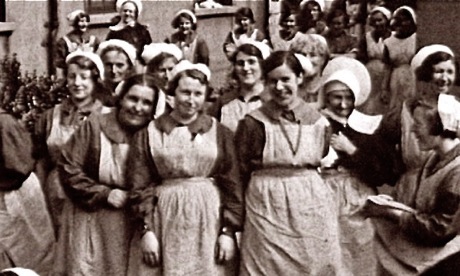The Irish state was directly involved in the incarceration of young women in the notorious Magdalene laundries, an official report has found.
The Irish government has previously denied direct involvement in the system, which was run by four religious congregations: the Sisters of Our Lady of Charity, the Good Shepherd Sisters, the Sisters of Mercy and the Sisters of Charity.
The report’s lead author, former Irish Senator Martin McAleese — husband of former Irish president Mary McAleese — said until now the facts and figures of the workhouses had been shrouded in “secrecy, silence and shame.”
The investigation found that 10,012 women were committed to the workhouses from 1922, the first year of Ireland’s independence from Britain, to the closure of the last two laundries in 1996.
It found that the average length of stay was just seven months, not the lifetime imprisonment commonly depicted in fictional works.
Though Irish Prime Minister Enda Kenny held back from a formal apology, he expressed regret that the residents of the Magdalene laundries were stigmatised as “fallen women,” a euphemism for prostitutes.
The investigators “found no evidence to support the perception that unmarried girls had babies there, or that many of the women of the Magdalene Laundries since 1922 were prostitutes. The reality is much more complex.”
About 27 per cent of the women were ordered into the facilities by an array of state employees: judges, probation officers, school truancy officials, social workers, doctors at psychiatric hospitals, or officials at state-funded shelters for unwed mothers and their babies.
Some 16 per cent entered laundries voluntarily, 11 per cent were consigned there by other family members, and 9 per cent were sent there on the recommendation of a priest.
The report disputed depictions in popular culture of physical beatings in the institutions, noting that many Magdalene residents had transferred there as teenagers from other Catholic-run industrial schools where such violence was common, and some survivors failed to distinguish between the two.
It found no evidence of such attacks in the nuns’ care and, specifically, no complaints of sexual abuse by the nuns.
Sources:
Image: RTE News
Additional readingNews category: World.




